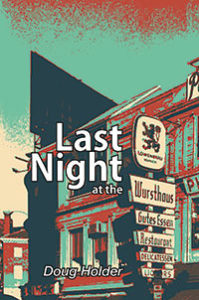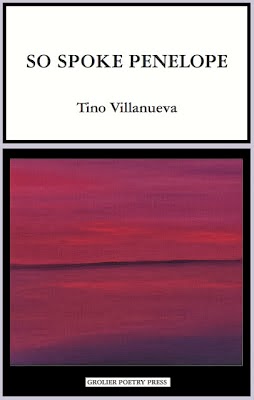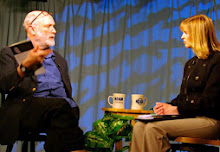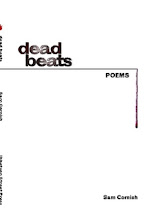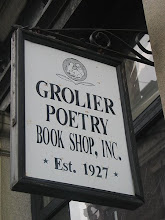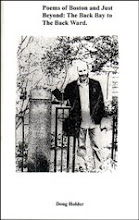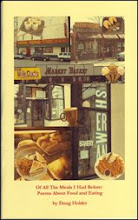In
the Museum of Surrender
By
Jeri Theriault
Encircle
Publications
Farmington,
ME
ISBN:
10 1-978-1-893035-20-1
24
Pages
$12.95
Review
by Dennis Daly
Generating
strength from weakness tricks the gatekeepers of our fanciful lives, changes
their logic, and opens a multiplicity of doors. Through the magic of her
empowering poems Jeri Theriault explores where each of these archival doors
leads and conveys both soul-searching wonderment and buffeting sadness. Her
chapbook collection, In the Museum of Surrender, is well titled and chock full
of antiquities and miscellany.
In
the opening piece the poet tries to make sense of life’s impediments by using a
very modern tool. She googles “heart.” Then she googles an old lover. Then a
defining moment in time. The poem ends with that timely moment, which also
doubles as the source of her strength. Theriault explains,
…I
google resilience
and
joy—only a little surprised
when
that same moment
comes
up: that summer
day,
me, the children,
the
flowers. And a plant
I
missed in the Peterson’s
Sanguinaria Canadensis
Bloodroot, its petals
winking
and
waving white flags,
while
the taproot,
its
buried strength—
the
very size and shape
of
my own heart—
reaches
deep
into
the dark.
The
poem entitled Gloves contrasts cultures of indulgence with cultures of
necessity. The poet’s persona buys herself a pair of impractical but nice
looking gloves. The Chinese manufacturer’s tag sets her imagination in motion.
First she considers the young factory girls who stitch the gloves and their work
life. Next she considers Zhihuong, a Chinese student she knows. Her simple
description rivets the readers’ attention to the desperate need to better
oneself, to rise from weakness, that balances off the purchase of frivolous but
needless items. Theriault describes Zhihuong this way,
the
Chinese girl in English 10, wearing
pink
corduroys, pink sweater—awkward,
dyslexic,
her voice bowing. She bends
over
crooked letters, her nails startlingly
red.
She writes: in my country
75 pupils in class. Teacher may not
Like you. You sit side-by side, almost
On top of. You try to learn
As much as you can.
My
favorite poem in this memorable collection, Once Upon a Dress, sparkles off the
page. Each line seems to wink at you.
Theriault’s Cinderella awkwardly wands herself and winds up enclosed in a glass
dress. So how does she get to the ball, you may ask. By forklift, of course. At
the heart of the piece the poet pretty much does a number on the Prince. She
says,
Next
morning, in the way of such tales, they are
married. No one mentions the problem
of her dress, ice mountain, glass
casket.
What this bride needs is a hand-on
Prince, or, better yet, her own tool
belt, ice
pick, hammer. (Look at him dashing
and
daunting, all straight teeth and epaulets.
He doesn’t have a clue.)
The
story ends happily ever-after with artistic puns on Cinderella’ s name. I won’t
spoil it, but—La, la, la!
Describing
the metamorphosis of an artist, Theriault’s poem Fox Heat breathes out
rejection, depression, and the rawness of creation with verve and imagistic
wisdom. After the poet’s protagonist fails at art and she is dubbed a
no-talent, she paints her windows black and turns her world into a fox den. A
natural artist emerges, a primitive force. Theriault continues the story,
She
calls the spirit of other foxes.
She
kills chickens, eats them raw
and
paints the walls of her cave
with their
blood.
Trees
grow near her bed,
willow and oak,
mushrooming through the ceiling
surprising her parents.
The
wind is just another
fox, dreaming
fox dreams
in the dark cave
of fox heat.
Beyond
the artistic world reality and truth sometimes intrude and sometimes comfort.
Theriault’s flirtatious poem entitled Retrieved makes this very point in a
startling way. The poet chronicles the love nods and winks of an unstrung
artist and her resulting retreat into a solitary but indulgent world. She
struggles to maintain balance by grasping at the sharpness of a fading light.
The poet concludes,
I will deny myself nothing.
Night
is the pet I trained,
fox is my tamed space,
fierce
and quiet, a true companion.
That’s no way to live. My mother’s
words—
slivers I retrieve—my own
scarce light.
Theriault’s
poem entitled Kintsugi ties this touching chapbook together. Kintsugi is the
Japanese art of repairing broken ceramics with gold, thereby gilding weakness
with wealth. The poet does the same thing with her art. She sews together faded
words, notes, diaries, letter, and recipes of family members with her golden
thread. Here’s how the poem opens,
My
mother has left me
a box of yellowed
paper—her poems, Memere’s
First Communion note,
Aunt Bern’s
tourtiere recipe,
letters,
diaries, all
these faded words: God
and make do.
These
poems are thoughtfully written and lovingly set. Even the poetic shapes (see
above) of these pieces fit their context. Wonderful little book. Surprising
big-talent author.










